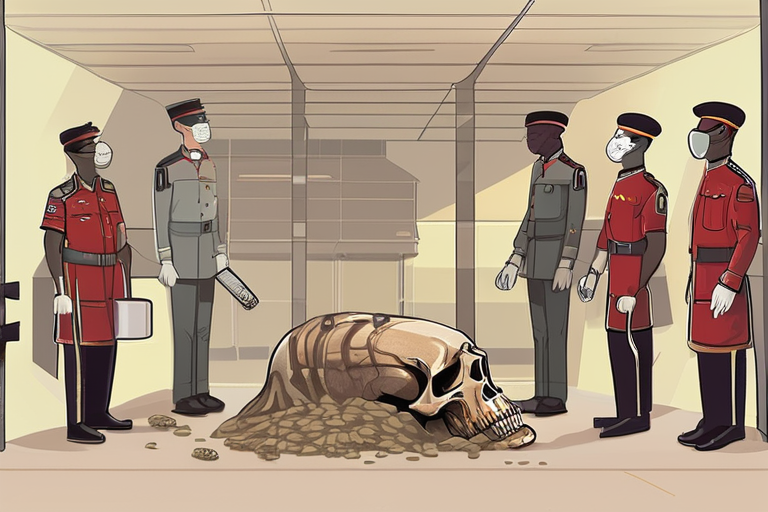Germany's Colonial Legacy Exposed: Human Remains Looted for Racist Science


Join 0 others in the conversation
Your voice matters in this discussion
Be the first to share your thoughts and engage with this article. Your perspective matters!
Discover articles from our community

 Hoppi
Hoppi

 Hoppi
Hoppi

 Hoppi
Hoppi

 Hoppi
Hoppi

 Hoppi
Hoppi

 Hoppi
Hoppi

Breaking News: Kenyan Woman's Brutal Murder Shocks Community Agnes Wanjiru, a 21-year-old Kenyan woman, was brutally killed near an army …

Hoppi

Breaking News: Kenyan Woman's Mysterious Death Sparks International Investigation Agnes Wanjiru, a 21-year-old Kenyan woman, was brutally killed near an …

Hoppi

Namibians Warned Against Holding Parties at Cemeteries After 'Disgraceful' Event Windhoek, Namibia - Authorities have issued a stern warning to …

Hoppi

Kenya Seeks Arrest of Former British Soldier Over Alleged Murder of Agnes Wanjiru A Kenyan high court judge has issued …

Hoppi

Kenyan Court Issues Arrest Warrant for Former British Soldier Over 2012 Murder of Agnes Wanjiru A Kenyan high court judge …

Hoppi

Breaking News: Agnes Wanjiru's Family Demands Justice Agnes Wanjiru, a 21-year-old Kenyan woman, was brutally killed near an army base …

Hoppi